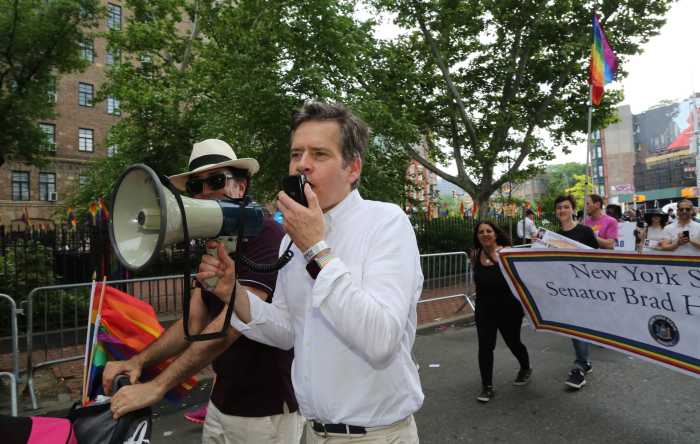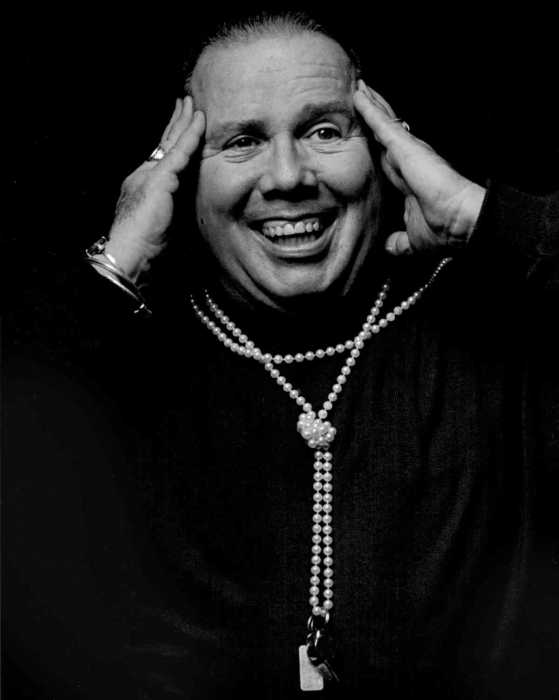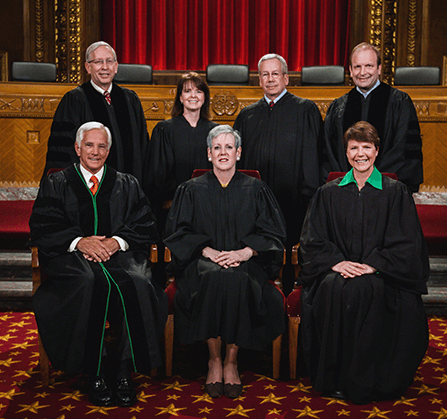Dr. Mathilde Krim, a geneticist and virologist who between 1983 and 1985 founded the American Foundation for AIDS Research (amfAR), which became the leading private funder of research, advocacy, and treatment to battle the epidemic, died on January 15 at the age of 91 at her home in Kings Point on Long Island.
Krim had ample professional experience motivating her interest in AIDS, including her 1953 Ph.D. in biology from the University of Geneva in Switzerland, her research on cancer-causing viruses at the Weizmann Institute of Science in Israel, and her leadership in the interferon program at the Sloan-Kettering Institute for Cancer Research in New York.
But, according to Pulitzer Prize-winning journalist Nan Robertson, to understand Krim, “one must go back to a single event that changed her life forever, shaping every major decision thereafter.” Born in Italy and raised in Geneva, she was at a movie house there in the winter of 1945 when she saw newsreels of the liberation of Nazi concentration camps. The scenes of emaciated survivors struggling to stand up informed her passionate outrage at all forms of prejudice and discrimination, Robertson wrote.
A scientist who brought her passion for social justice to the war on AIDS
Asked by the New York Times nearly 40 years later what prompted her to move out front in the fight against AIDS, Krim said, “Because I was incensed.” Her obituary in the New York Times recalled that in 1988 she told the Times Magazine that she acted because of the prevailing public attitude she found at the time, explaining, “They felt that this was a disease that resulted from a sleazy lifestyle, drugs, or kinky sex — that certain people had learned their lesson and it served them right. That was the attitude, even on the part of respectable foundations that are supposed to be concerned about human welfare.”
In his 1997 book “The Gay Metropolis: The Landmark History of Gay Life in America,” Charles Kaiser wrote, “One scientist outside the government was more important than any other heterosexual in New York City in sounding the alarm about the growing crisis. Her name was Mathilde Krim.”
Dr. Mathilde Krim with ACT UP founder Larry Kramer and Dr. Anthony Fauci, director of the National Institute of Allergies and Infectious Diseases, at a 2006 New York Times Talk focused on the 25th anniversary of the first public health recognition of AIDS’ emergence. | DONNA ACETO
The late Allan Rosenfield, who was the dean of the Columbia University Mailman School of Public Health and a longtime amfAR board member, wrote, “Mathilde did carry AIDS into the social mainstream. She saw that AIDS would demand the intellectual resources of the fields of medicine, basic science, and public health, and she set out to bring them to amfAR to guide its research grant-making, overturning many stereotypical notions of gay men in the process.”
AmfAR credits Krim as being a pivotal figure in moving Washington to belatedly provide significant funding for both research and treatment regarding the epidemic, after nearly a decade of neglect.
AmfAR grew out of Krim’s collaboration with Dr. Joseph Sonnabend, who in New York in the early 1980s pioneered a community-based approach to studying and responding to AIDS. With other allies, they formed the AIDS Medical Foundation in 1983, which two years later merged with a California-based group to form amfAR. By the time Krim stepped down from the group’s board in 2004, it had come to be known as amfAR, the Foundation for AIDS Research, to reflect both the global impact of the epidemic and the group’s broad international reach.
In addition to her scientific credentials and her impassioned advocacy, Krim also brought a connection to New York society life and its deep pockets, with her marriage to Arthur B. Krim, an entertainment lawyer who had chaired both United Artists and Orion Pictures as well as the Democratic National Finance Committee. Krim was able to bring on board Elizabeth Taylor, who became the group’s founding international chair and lent Hollywood glamour and universal visibility to an epidemic that in its earliest years was ignored by public officials and other leading figures in American life.
Because her commitment to the AIDS issue was motivated, in good measure, by her passion for social justice, Krim found an easy fit with the street activists who scared off other establishment figures. In 2006, Larry Kramer, whose 1987 appearance at the LGBT Community Center is credited with launching ACT UP, said of Krim, “One can only be filled with overpowering awe and gratitude that such a person has lived among us.”
In a written statement issued by the Treatment Action Group, which grew out of one of ACT UP’s committees, its executive director, Mark Harrington, said, “We have lost an inspirational, tireless, and catalytic leader of our movement. Dr. Krim understood the gravity of the epidemic, in its earliest and darkest days, and was driven by her own remarkable intelligence, fierce commitment to civil rights and social justice, extraordinary social and political networks, and true grit to galvanize funders, scientists, policy leaders, and activists toward a single cause: ending HIV and AIDS as a threat to humanity.”
Dr. Mathilde Krim greets Bob Tisch and his wife Joan (partially obscured), then a board member at Gay Men’s Health Crisis, at a 2005 GMHC event. | DONNA ACETO
Tim Horn, the group’s deputy executive director, said, “I genuinely believe that we wouldn’t be where we are today without Dr. Krim’s brilliance, determination, and mobilization. Beyond her unparalleled contributions to HIV/ AIDS research fundraising and awareness, she was an interminable source of strength, support, and wisdom for countless activists over the years.”
Barbara Hughes, the president of its board, perhaps put it most simply, saying, “TAG has lost a matriarch of our family, a leader in our movement, and a steadfast supporter of our work.”
In 2000, President Bill Clinton awarded Krim the Presidential Medal of Freedom, the nation’s highest civilian honor.
AmfAR quoted Krim as saying, “Were it not for the profound sadness I feel for being so close to immense tragedy, I would consider my work for amfAR, an organization poised on the frontiers of medical research, the most exciting, enviable, and rewarding of all.”
Iconic performing artist and civil rights leader Harry Belafonte, a longtime amfAR board member, said, “Mathilde will be remembered as one of the great human rights leaders of our time. Her brilliance and compassion reached far beyond public health as an example for us all of the importance of tolerance and social justice.”
Krim, whose husband died in 1994, is survived by her daughter Daphna Krim of Bethesda, Maryland, a grandson and granddaughter, and her sister Maria Jonzier of Port Washington.
The family has requested that in lieu of flowers, donations be made to amfAR.





































